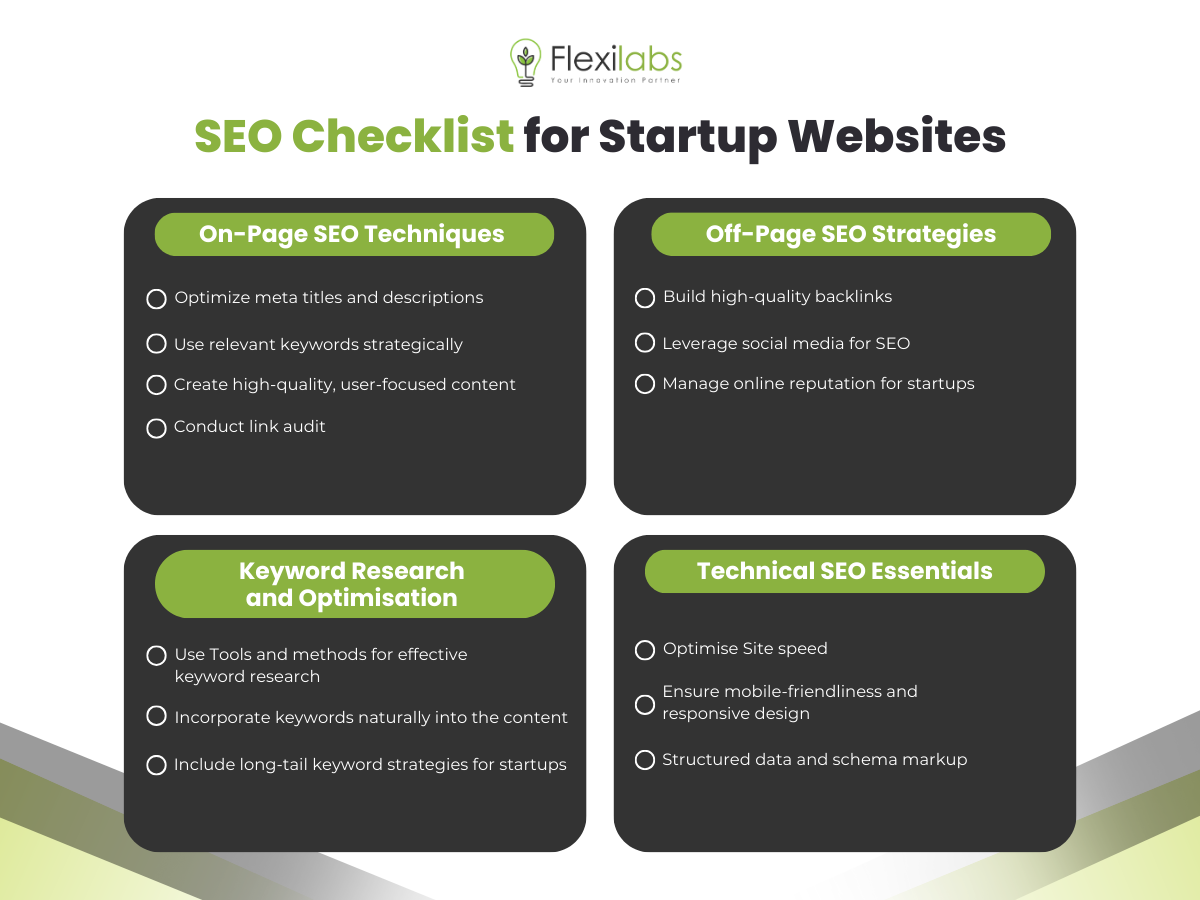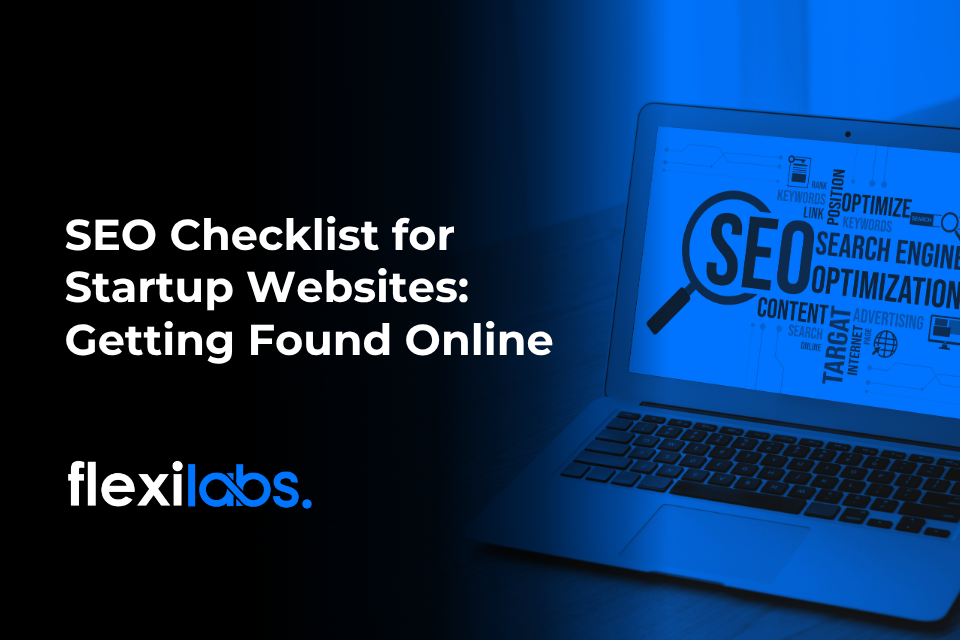If you have a website for your startup, you want to get more traffic, leads, and customers from the internet. But how do you do that? How do you ensure your website is visible and relevant to your target audience? That’s where SEO comes in.
SEO can increase your chances of getting found online by people looking for what you offer. But it is also challenging. It involves many factors, such as keywords, content, links, design, etc. And it’s constantly changing as search engines update their algorithms and user behaviour evolves.
So, to help you in your journey, this guide will cover the essential SEO topics that every startup owner should know.
What is SEO?
Alright, let’s break it down.
SEO stands for Search Engine Optimisation. It is the practice of optimising your website to improve its visibility and ranking on search engine results pages (SERPs). The ultimate goal of SEO is to drive organic (non-paid) traffic to your website by ensuring that it appears prominently for relevant search queries.
With that, SEO is the art of making your website more visible and attractive to search engines like Google. It involves various strategies and techniques to enhance the quality and relevance of a website’s content, optimise its structure and design, and earn credibility from other websites through backlinks.
What is the Significance of SEO for Startups?
You might be thinking, “Hey, I’m just starting. Do I need to worry about SEO?” The short answer is yes!
For startups, SEO can be a game-changer digital marketing tool.
Firstly, it offers a cost-effective way to attract targeted traffic, build brand awareness, and generate leads. Unlike traditional advertising methods, which can be expensive and fleeting, SEO provides long-term benefits and can yield sustainable results over time.
Similarly, startup SEO is not just about short-term gains; it’s about building a solid foundation for long-term growth and sustainability. Unlike temporary marketing campaigns, the results of these efforts can compound over time, leading to sustained growth and increased visibility in the digital marketplace. Startups can establish their online presence, build brand awareness, and attract organic traffic over time.
Likewise, SEO allows startups to attract highly targeted traffic to their website by focusing on relevant keywords and search queries. This targeted traffic is more likely to convert into leads, sales, or other desired actions, resulting in a higher return on investment (ROI) for the startup.
SEO Checklist for Startups

On-Page SEO
On-page SEO refers to the optimisation strategies and practices implemented directly on a website’s pages to improve its visibility and ranking in search engine results pages (SERPs). These techniques focus on optimising various on-page elements to make them more relevant, authoritative, and user-friendly.
Here are some critical on-page SEO techniques:
- Optimise meta titles and descriptions. Meta titles and descriptions are the little snippets in search results. With that said, craft them accurately and describe the content of each page while incorporating relevant keywords. Make them catchy and include relevant keywords to grab people’s attention.
Use relevant keywords strategically. Conduct keyword research to identify the terms and phrases your target audience is searching for and strategically integrate them into your website’s content. - Create high-quality, user-focused content. Produce valuable and engaging content that addresses the needs and interests of your target audience. Focus on quality over quantity and strive to become a trusted resource in your industry.
- Implement linking best practices. Implement linking strategies to improve navigation and distribute link equity throughout your website. Link to relevant pages using descriptive anchor text.
Off-Page SEO
Off-page SEO refers to optimisation techniques implemented outside a website to improve its search engine rankings and increase its online authority and credibility. Unlike on-page SEO, which focuses on optimising elements directly on the website, off-page involves activities that occur off-site but still impact the website’s visibility and reputation in search engine results pages (SERPs).
Likewise, here are some critical off-page SEO strategies:
- Build high-quality backlinks. Earn backlinks from reputable websites within your industry to demonstrate authority and improve your website’s credibility in the eyes of search engines.
- Leverage social media for SEO. Engage with your audience on social media platforms to increase brand visibility and encourage social sharing, which can indirectly impact your website’s search rankings.
- Online reputation management for startups. Monitor and manage your online reputation by actively responding to customer feedback and reviews. Positive reviews can enhance your credibility and attract more customers.
Keyword Research and Optimisation
Keyword research and optimisation are fundamental aspects of startup SEO. This aims to identify relevant keywords and strategically incorporate them into website content to improve search engine visibility and attract targeted traffic.
With that said, here’s a breakdown of the process:
- Use tools for effective keyword research. Utilise SEO tools such as Google Keyword Planner, SEMrush, and Moz Keyword Explorer to identify relevant keywords with high search volume and low competition.
- Incorporate keywords naturally into the content. Avoid keyword stuffing and instead focus on creating high-quality, informative content that naturally contains target keywords to enhance readability and user experience.
- Include Long-tail keyword strategies for startups. Target long-tail keywords, which are more specific and less competitive than broad keywords, to capture highly targeted traffic and improve your chances of ranking for niche topics.
Technical SEO
Technical SEO refers to optimising various technical aspects of a website to improve its visibility and performance in search engine results pages (SERPs).
Unlike on-page and off-page, which focus on content and external factors, technical SEO deals with the behind-the-scenes elements that affect how search engines crawl, index, and rank a website.
Here are some critical aspects of technical SEO:
- Optimise Site speed. Optimise your website’s loading speed to provide a seamless user experience and keep visitors from slow-loading pages. Compress images, minify CSS and JavaScript, and leverage browser caching to improve performance.
- Ensure Mobile-friendliness and responsive design. Ensure your website is mobile-friendly and optimised for various screen sizes and devices. Google prioritises mobile-responsive websites in its search rankings, which is crucial for startup SEO success.
- Implement Structured data and schema markup. Implement structured data markup to provide search engines with additional context about your website’s content, such as reviews, ratings, and product information. This can enhance your visibility in search results and attract more clicks.
Conclusion
In conclusion, SEO is an indispensable component of any startup’s digital marketing strategy. By optimising your website for search engines, you can improve its visibility, attract targeted traffic, and ultimately drive business growth.
Ready to boost your startup’s online presence through SEO? Contact us today for expert guidance.










